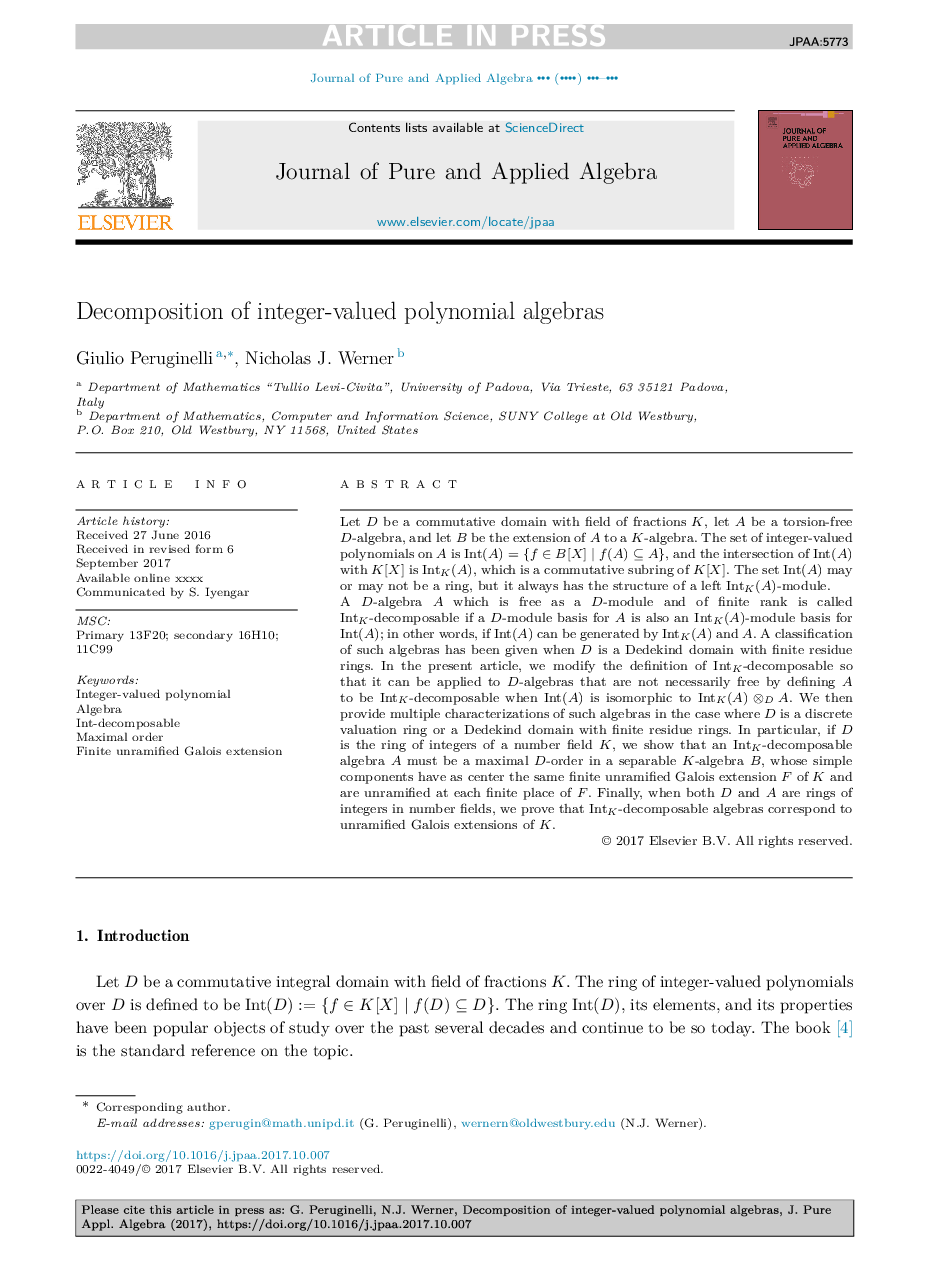| Article ID | Journal | Published Year | Pages | File Type |
|---|---|---|---|---|
| 8897428 | Journal of Pure and Applied Algebra | 2018 | 18 Pages |
Abstract
A D-algebra A which is free as a D-module and of finite rank is called IntK-decomposable if a D-module basis for A is also an IntK(A)-module basis for Int(A); in other words, if Int(A) can be generated by IntK(A) and A. A classification of such algebras has been given when D is a Dedekind domain with finite residue rings. In the present article, we modify the definition of IntK-decomposable so that it can be applied to D-algebras that are not necessarily free by defining A to be IntK-decomposable when Int(A) is isomorphic to IntK(A)âDA. We then provide multiple characterizations of such algebras in the case where D is a discrete valuation ring or a Dedekind domain with finite residue rings. In particular, if D is the ring of integers of a number field K, we show that an IntK-decomposable algebra A must be a maximal D-order in a separable K-algebra B, whose simple components have as center the same finite unramified Galois extension F of K and are unramified at each finite place of F. Finally, when both D and A are rings of integers in number fields, we prove that IntK-decomposable algebras correspond to unramified Galois extensions of K.
Related Topics
Physical Sciences and Engineering
Mathematics
Algebra and Number Theory
Authors
Giulio Peruginelli, Nicholas J. Werner,
